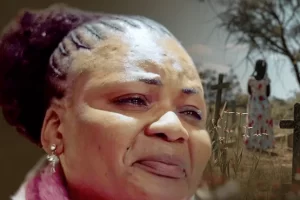When two elephants fight, the grass suffers, so goes an old African adage. This is probably true for the family of Pastor Deo Nyirigira, 67. A resident of Kakyeka in Mbarara municipality, the pastor’s family has paid a high price every time there is tension between the president of Rwanda, Paul Kagame, and his Ugandan counterpart, Yoweri Museveni.
This time three of his daughters are being held incommunicado in Rwanda. Uganda and Rwanda are in the grip of yet another bout of tensions. Kagame recently told a meeting of his Rwanda Patriotic Front politburo that Uganda is not only sheltering dissidents who are plotting to overthrow his government, but is also actively supporting them.

One such dissident is Deo Nyirigira. Like many Rwandans running from government in Kigali, Nyirigira for so many years lived in Uganda as a refugee following the first exodus of Tutsis from Rwanda in 1959. After the NRM came to power with the help of Rwandese who had formed the nucleus of Museveni’s rebel army, the refugees left Uganda in 1994.
Nyirigira was part of that group particularly close to the first leader of the RPF, Fred Rwigyema. After toppling Juvenal Habyarimana’s government, Nyirigira together with his family of six children was glad that finally he was going to have a place to call home.
Although Uganda had been kind and hospitable to them, life as a refugee is always very challenging. But he was wrong. His stay in Rwanda turned out to be short-lived as only five years later he had to sneak back to Uganda.
Fred Muzatsinda (not real name), his son who spoke to The Observer on behalf of the family, said in 2000, their father started being harassed by state security. He was accused of being part of a growing clique of RPF officials critical of the government.
But Nyirigira by this time was supposed to have left his job as a mobiliser for the RPF in favour of serving God. He was running more than 30 churches around Rwanda. The government, however, suspected that he was using them to spread anti-establishment sentiments; they closed them.
Then he was picked up for questioning by the Directorate of Military Intelligence [DMI]. He didn’t return before a full month was over. He was released without a charge. A few months later, Nyirigira was picked again and held incommunicado for two months but as usual no charges were brought against him.
“After some time, a friend of his gave him intelligence that they were about to arrest him again, this time forever. That’s when he took a decision to escape from Rwanda and that’s how we returned to Uganda in March 2001,” Muzatsinda said.
When they returned to Uganda, they settled at Kakyeka from where they applied to the United Nations High Commissioner for Refugees for refugee status. They were stunned when their application was refused.
“They gave us three days to return to Rwanda, claiming that we had no justifiable reasons to ask for refugee status. It was bizarre how one would want you to return to a country you have run away from,” Muzatsinda said.
Being familiar with how the RPF operated, he knew somebody had influenced the decision. Nyirigira refused to return, arguing that they should give him time to organise and leave for another country where he would feel safe.
The pressure kept on mounting, climaxing into the storming of his home with the view of returning him back to the country by force. It was after the intervention of the then Ugandan army’s commander Maj Gen James Kazini (deceased) that he was let free.
“Another time they stormed our residence at around 3am. but the guards that Kazini had given us shot one of them. Before he died, he told us that they had been sent … to kidnap us; we have been living in fear all the time,” Muzatsinda says.
If there is one piece of news that excited the Nyirigiras, it was the sacking of Inspector General of Police Kale Kayihura. Muzatsinda refers to the fact that Kayihura has been implicated in the alleged illegal repatriation of Rwandan refugees.
Sisters leave for Kigali
Downplaying the persona non grata status of their father, daughters Axelle Umutesi, 30, Lillian Umutoni, 32, and Jackline Umuhoza, 27 after completing Makerere University chose to return to Rwanda where there are more job opportunities for English speakers. They were lucky; Umutesi got a job at RT television and radio.
Lillian not only got a job in an information technology company but also a husband with whom they had two children; the first born being three years and the last one year.
Jackline too got a job at a solar company. Life seemed to be moving on pretty well. “When they got jobs, they were asked to renounce their Ugandan citizenship in return for Rwandan citizenship; they surrendered their passports,” Muzatsinda says.
Falling out
Back in Uganda, Muzatsinda says his father continued to attract interest from Kigali security circles. His Agape Community church in Mbarara had become particularly popular with Rwandan refugees.
Nyirigira’s lawyer (names withheld in order not to attract attention to his relatives who live in Kigali) says all Nyirigira has done is to give spiritual support to whoever needs it.
“As a community leader, many people run to him to seek solace and for counselling; many Rwandans living in Uganda are part of those people. He cannot chase them surely. He is not interested in politics anymore. We wonder why the government of Rwanda is still interested in him after almost 20 years since he left,” he said.
The authorities in Rwanda then turned on the three girls. First it was Lillian’s husband who was intimidated into divorcing her; which he did. She was forced out of their house with the two little children. She moved in with her sisters.
Then the three were sacked from their jobs without clear reason. They were summoned by military intelligence for questioning about money their father was sending them for rent and upkeep. They were also asked why their father was fighting the government.
“They told them to write a letter denouncing their father if they wanted to regain their peace but they refused. They have tried to petition the police and the RPF on why they are being harassed but they have never received feedback. When they tried to leave the country at the beginning of March, they were arrested again and spent a week in prison with the children.
“Their Rwandan and Ugandan documents were confiscated. They have been restricted from receiving any calls or money from outside the country yet they are not working,” Muzatsinda says. The lawyer adds that they must also call the DMI two times every day at 11am and 11pm to confirm that they are in the country.
“They are desperate to leave but the security won’t allow them. We think that by speaking out about their situation somehow, the government will release them because they are innocent. We are very worried,” Muzatsinda says.
Efforts to speak to the Rwandan high commissioner in Uganda Maj Gen Frank Mugambage for this story were futile as he didn’t pick our calls or respond to our questions sent to him on his known telephone contact.




